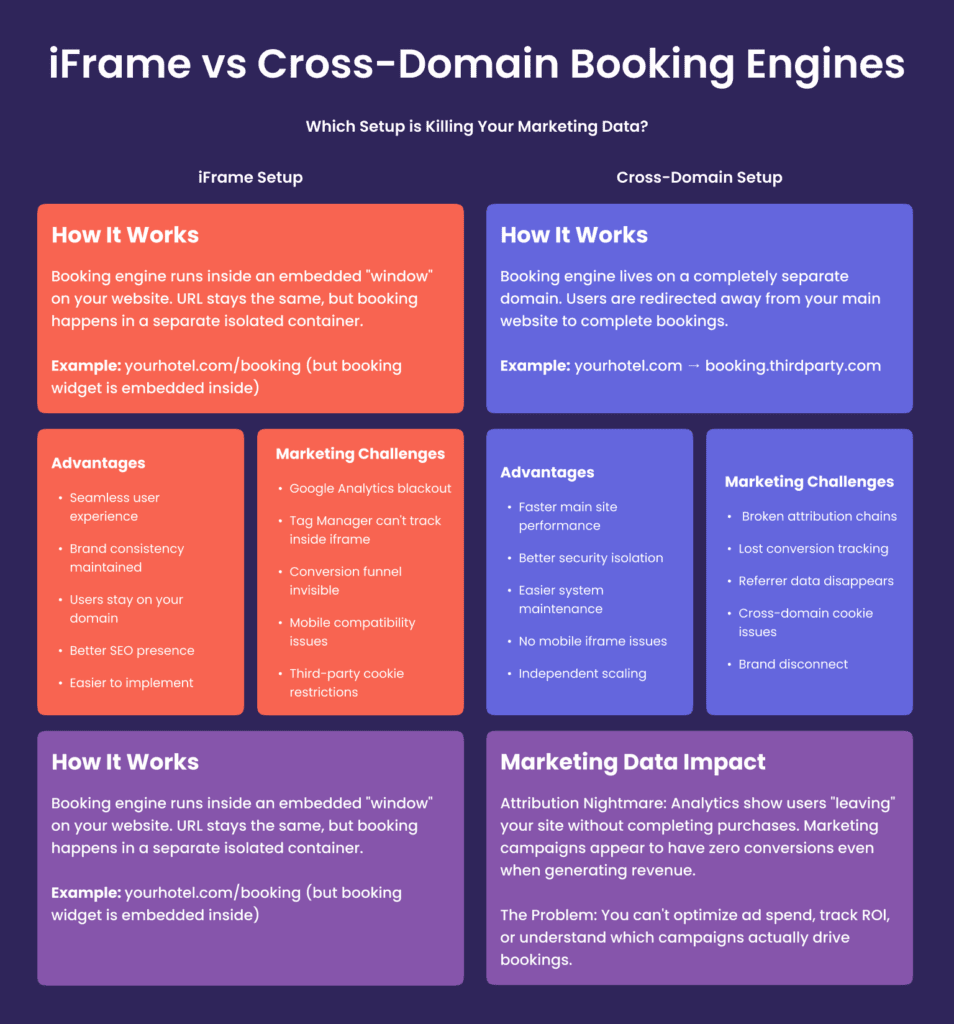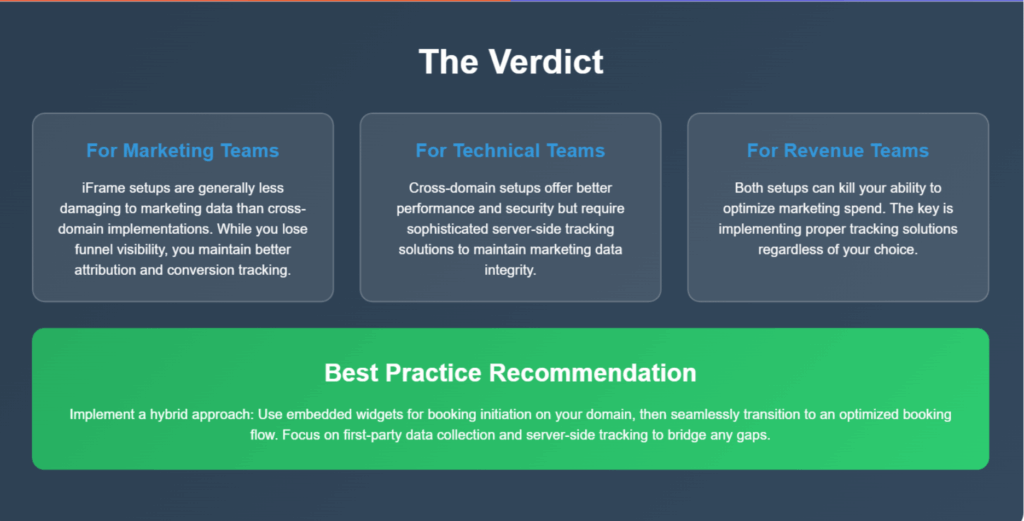Hotel booking engines operate through different technical implementations that can dramatically impact your ability to track marketing performance. Understanding these differences is crucial for making informed decisions about your property’s booking system and maximizing your marketing ROI.
The iFrame Trap: How Seamless UX Creates Marketing Blind Spots
Many hotels unknowingly sacrifice valuable marketing data when their booking engines use iframe technology. An iframe embeds a separate website within your hotel’s main website, creating what appears to be a seamless user experience but actually represents a significant tracking blind spot.
When guests click a booking button on an iframe-enabled site, the URL in their address bar remains unchanged, giving the impression they’re staying on your website. However, the booking process occurs within an embedded secondary website that operates independently of your main site’s tracking systems.
The Tracking Blackout Effect
The critical issue with iframe implementations is that user behavior within these embedded booking systems becomes completely invisible to Google Analytics and Google Tag Manager. Every action guests take during the booking process – room selection, date changes, preference modifications and occurs in a tracking vacuum that your analytics cannot penetrate.
This creates a fundamental problem: while guests successfully complete bookings, marketing managers lose access to crucial conversion data. The result is incomplete attribution reporting that makes it impossible to determine which marketing campaigns actually drive revenue.
Understanding the Technical Limitations
The tracking breakdown occurs because iframe content operates as a separate website session, even though guests perceive it as part of your main site. Your Google Analytics tracking code cannot monitor user interactions within the iframe, leading to fragmented data collection.
Most hotels don’t choose iframe implementations deliberately, booking engines like Fair Harbor often default to this structure. Unfortunately, many marketing managers only discover these limitations after investing in a booking system, making it expensive to change course.

Workarounds and Solutions
Despite these limitations, some tracking recovery is possible through strategic implementation of confirmation pages. By directing users to a thank-you page outside the iframe after booking completion, hotels can capture transaction data including booking values, currency information, and transaction IDs.
However, this workaround only provides final transaction data such as the detailed user journey, room selection hesitations, and booking process behaviors remain invisible.
See the Technical Demonstration
Watch the complete technical breakdown showing exactly how iframe implementations impact your marketing data collection.

The Bottom Line
While iframe booking systems aren’t inherently problematic for guest experience, they create significant challenges for marketing attribution and performance tracking. Understanding these limitations is essential for making informed decisions about booking engine selection and developing realistic expectations for data collection capabilities.
Ready to dive deeper into these technical concepts? Watch the full video demonstration to see these tracking challenges in action and learn about alternative solutions that can help maximize your marketing data collection while working within your current system’s constraints.
Fix Your Hotel’s Invisible Conversion Problem
Get the technical solutions that recover your lost marketing attribution.